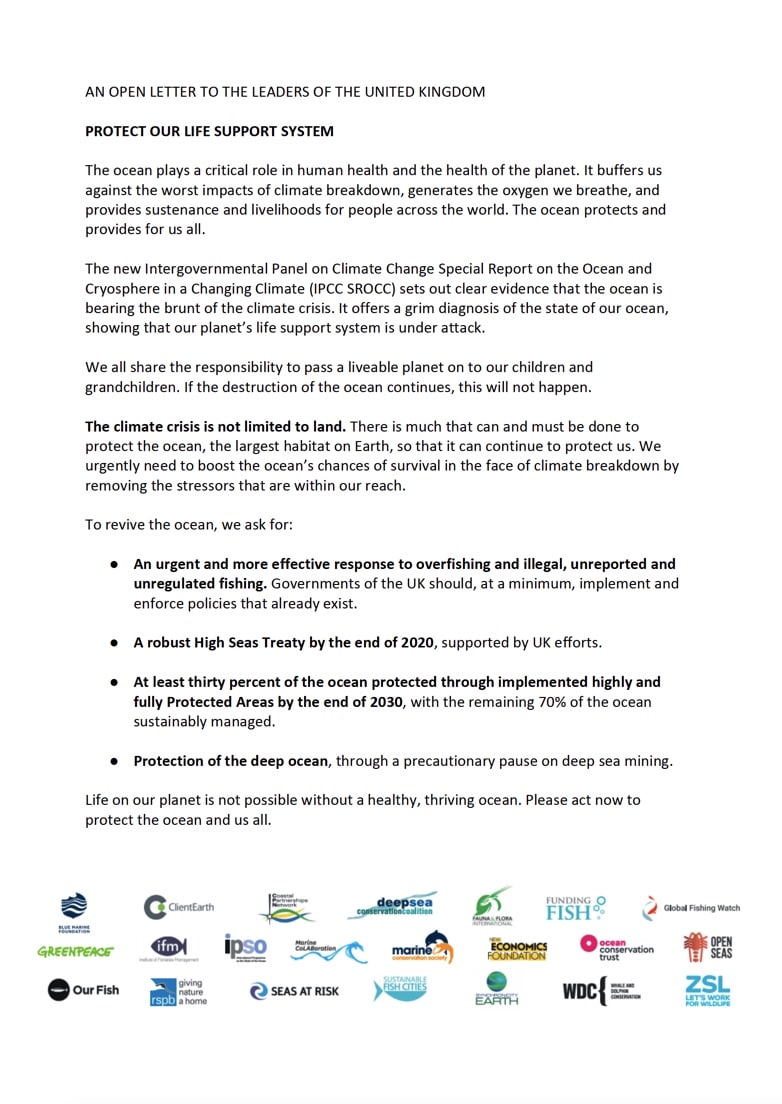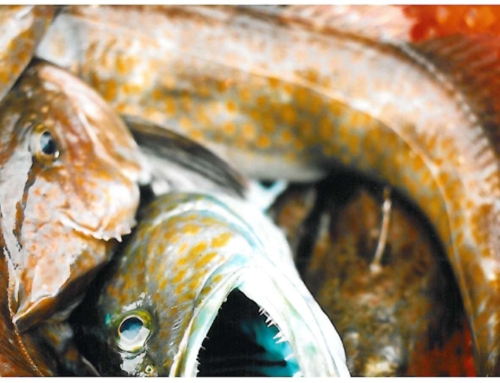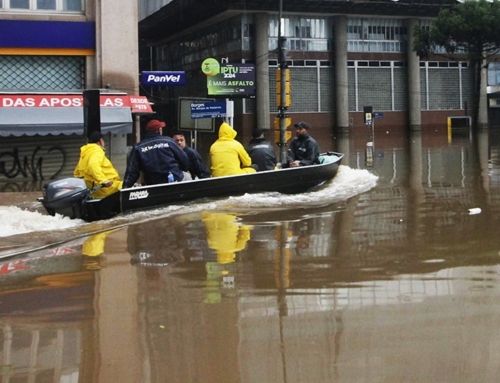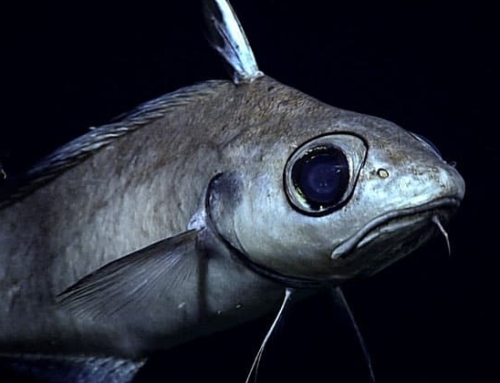In response to the Intergovernmental Panel on Climate Change (IPCC) Special Report on the Ocean and Cryosphere in a Changing Climate, Synchronicity Earth has added its signature to an open letter addressed to UK leadership urging rapid action for ocean protection.
Four actions for oceans
The letter, which was supported by an advert in The Times, has four key asks:
- An urgent and more effective response to overfishing and illegal, unreported and
unregulated fishing. Governments of the UK should, at a minimum, implement and
enforce policies that already exist.
- A robust High Seas Treaty by the end of 2020, supported by UK efforts.
- At least thirty percent of the ocean protected through implemented highly and
fully Protected Areas by the end of 2030, with the remaining 70% of the ocean
sustainably managed.
- Protection of the deep ocean, through a precautionary pause on deep sea mining.
Although the ocean is inextricably linked with the climate, with the two working together to make planet Earth habitable, this is the first time that the IPCC has turned its attention to the marine realm. The resulting report conveys what marine scientists and NGOs have been saying for years, that ocean ecosystems are beginning to collapse under an onslaught of needless stressors from overfishing to pollution, compounded by climate breakdown.
Our life support system
Professor Dan Laffoley of the IUCN World Commission on Protected Areas: “We are an ocean world, run and regulated by a single ocean and we are pushing that life support system to its very limits through heating, deoxygenation and acidification. We are well past ‘wake up calls’ – what we need now is enlightened self-interest to deliver the actions that protect the ocean and climate and which in turn protect and support humanity.”
The timescales at work within the ocean mean that changes already put into its system – such as warming – will remain at work for hundreds of years, consequently, even with immediate action to curb temperature rise and cut CO2 emissions, ocean services to the planet could still be at risk.
This is why it is so important that all extraneous stressors on the ocean which can be controlled, are. Overfishing, pollution, destruction of habitats, ecosystems and biodiversity are all stressors which can be stopped to support the resilience of the ocean to withstand the climate crisis.
High and Deep Seas protection
Although the picture painted by the IPCC is undeniably bleak, there are measures which can be taken now to help bolster the resilience of the ocean and which governments need to finally and robustly take action on.
The High Seas (the area beyond the national jurisdiction of any state) cover 64% of the ocean’s surface, and the deep sea (below 200 metres) makes up 90% of our planet’s marine environment and is believed to be home to the greatest diversity of ecosystems and species on Earth. Despite the size and richness of these marine environments, they are extremely vulnerable to exploitation and their protection is a matter of urgency.
Between now and the end of 2020, the High Seas should be protected under international law. A new treaty is being negotiated at the United Nations and states should complete this in 2020. Synchronicity Earth’s partners, the High Seas Alliance and the Deep Ocean Stewardship Initiative, have been providing technical advice, well-researched ways forward for the UN decision makers, and keeping public attention on the treaty.
Deep-sea mining, a relatively new and dangerous threat to oceans, has been growing as 29 seafloor exploration licences have been granted which cover vast areas of the Pacific, Atlantic and Indian Oceans, totalling 1.3m sq km (500,000 sq miles). Even though these areas are little-understood and mining could have serious side-effects, if this mining goes ahead, large machines will be transported to the seabed to excavate cobalt and other rare metals.
In the wake of these potentially significant, yet unknown consequences, there have been calls for a moratorium on deep-sea mining from individuals, environment organisations and the European Parliament, including SE partners in the High and Deep Seas programme.






